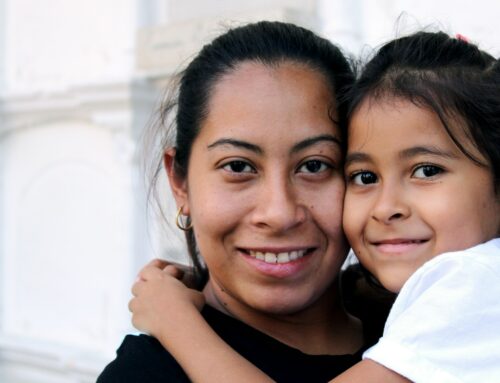Like many nations, Canada has implemented some very strict travels regulations in order to cope with the COVID-19 pandemic. While entering the country has grown more difficult, the IRCC (Immigration, Refugees and Citizenship Canada) is still accepting and processing applications for immigrants. But for those foreigners whose visas, study permits or work permits have not already been approved, they probably cannot enter Canada at this time.
Is it still possible to immigrate to Canada under current COVID restrictions?
As COVID cases began spiking again in June, around the world and especially in the United States, Canada has maintained some of the strictest travel restrictions on the globe. This is making it very difficult, but not impossible, for most foreign nationals to enter Canada.
Who can enter?
The following groups and individuals are still allowed to enter the country:
- Canadian citizens, Canadian passport holders, and permanent residents of Canada
- Immediate family members of Canadian citizens and permanent residents, conducting essential travel
- Temporary workers with a valid work permit, or who have been approved for a work permit but have not yet received it
- Participants in IEC (International Experience Canada) with a valid job offer, even if they have not yet activated their work permits
- IEC participants who have already activated their work permits but were outside the country temporarily, in which case they do not need to present a valid job offer in order to re-enter
- International students who had already received or been approved for a study permit when the travel restrictions took effect on March 18, 2020
- Permanent residents whose applications had been accepted and approved before the restrictions took effect on March 18, 2020, but who had not yet entered Canada
What about new immigration applications?
The IRCC is still accepting new applications for permanent residence. However, due to the many complications associated with the COVID-19 response, the time needed to review and process applications is longer than usual. Unfortunately, the IRCC cannot estimate waiting and processing periods at this time.
The IRCC is currently giving priority to the following types of applicants:
- Canadians returning to the country
- Vulnerable groups, including certain refugees and asylum seekers
- People who perform or support essential services
It may be difficult at this time to obtain certain supporting documents that go with your application. If you have already applied and are waiting only other documents, you should send a letter to the IRCC to explain the nature of the delay, and include something like a receipt to prove that you are waiting for the document.
If you haven’t already submitted your application, you should wait until you have all your supporting documents before applying.
What is the current status of Canada’s travel ban?
Even as other countries have begun loosening their borders, Canadian travel restrictions remain quite strict.
From the United States
Foreigners traveling from the United States for optional or discretionary reasons are not allowed into Canada. The Canadian government has extended this travel ban to July 21, at which point it may expire and be renewed. Many Canadians have expressed a willingness to keep the travel ban in effect until the end of the year. Given the number of new cases occurring in the U.S. this month (July 2020), such an extension would not be surprising.
There is an exception for immediate family members who are asymptomatic and comply with the 14-day quarantine (see below). They can enter Canada to visit their family, with a minimum stay of 15 days. Immediate family members include spouses and common law partners, as well as parents and dependent children.
From countries other than the U.S.
Canada and the U.S. have always enjoyed a special diplomatic relationship, so the travel ban against Americans is a historic first. Even so, the ban against travelers coming from America and other countries is basically the same at this time. The travel ban against international flights originating somewhere other than the U.S. remains in effect until July 31, 2020. But that timeline could be extended.
The same exemption for exists for immediate family members coming for at least 15 days.
Is Canada requiring travelers to self quarantine?
According to the Canadian Government and the IRCC, anyone traveling to Canada by air must follow all airline requirements, pass a health check conducted by the airline, and be prepared to self quarantine for 14 days. Anyone who shows symptoms of COVID-19 will not be allowed to enter Canada by air.
Upon arrival in Canada, the IRCC will assess everyone’s health before they can leave the port of entry. All travelers must have a plan to quarantine for 14 days when they arrive in Canada. This is mandatory, even if they have no symptoms. Anyone who cannot comply with the quarantine should not travel to Canada. Those who do not have a plan to quarantine will either be turned away and denied entry into the country, or else Canadian officials may force them to self isolate in a government designated hotel.
Only people who provide essential services, such as truck drivers who regularly cross the border to maintain the flow of goods, are exempt from the quarantine requirements.
Further reading
ARIANNE Relocation has been helping families, students and professionals relocate and get settled in Canada for more than 20 years. We offer a range of products and services to help our clients find the best housing, understand the school and childcare options, and navigate the bureaucracy of their new land.
In addition to this information about COVID-19 and Canadian immigration, you might also find the following articles useful:
- 5 Steps to Canadian Immigration
- Canadian Healthcare for Immigrants
- Where to live when moving to Canada
PHOTO CREDIT: Protective gear for COVID-19 (Unsplash)







Leave A Comment